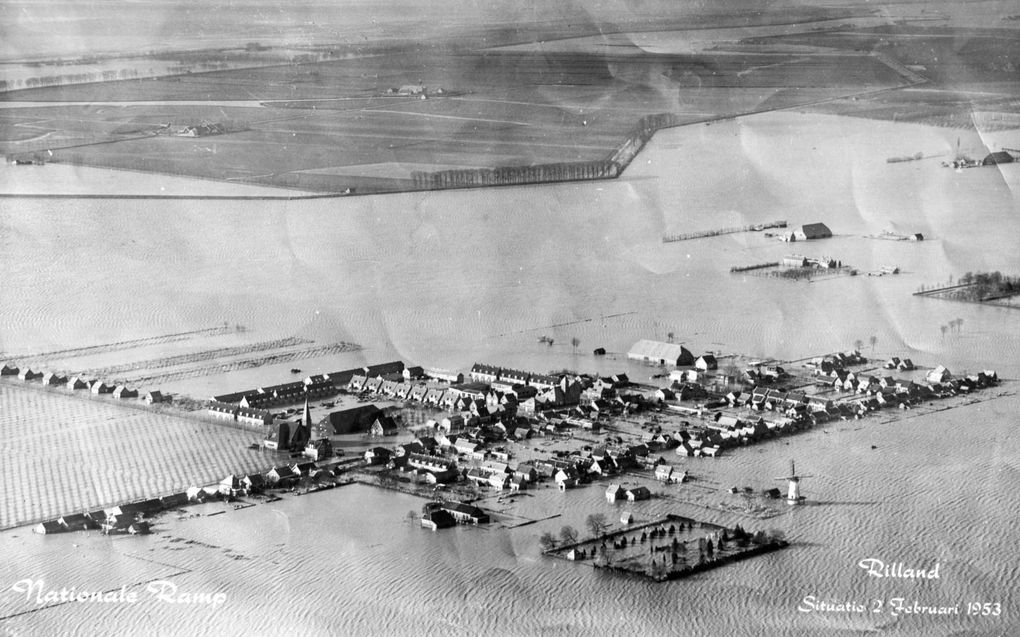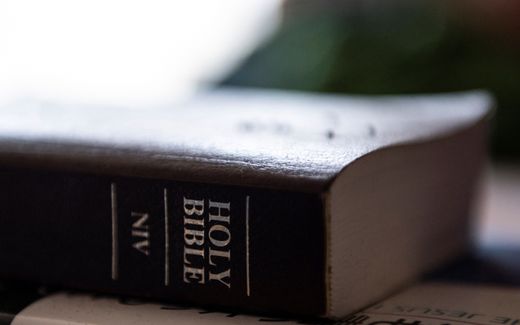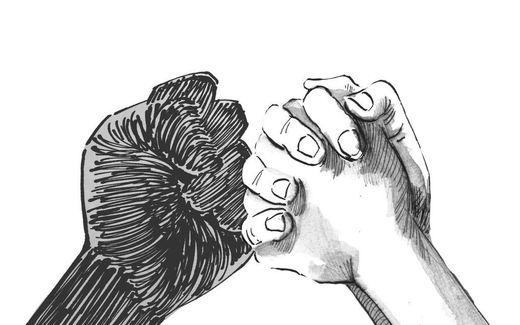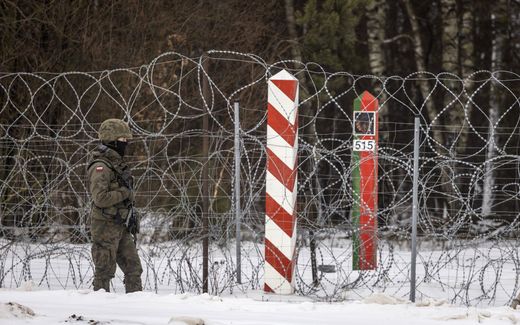Fear and wonder after a disaster night
31-01-2023
Western Europe
Johan Leeflang, RD

The situation in the nearby village of Kruiningen. Photo ANP, Co Zeylemaker
Western Europe
The whole family knelt around the bed while the water was rising in the house. The Van Vreeswijk family had only been living in the southwestern province of Zeeland in the Netherlands for two days when the dykes broke. The fear of the water always remained.
Tearfully, G. van Vreeswijk-Kraan sits in her chair in her flat in Gouda. She is a hundred years old. Her husband, whom she was married to for more than 70 years, died four years ago. Besides the joy of a large offspring, with twelve children and five generations, she also experienced a lot of grief. She does not hide that. "You have to talk about it; otherwise, it gets stuck inside," she says. Daughter Anneke Rozendaal-van Vreeswijk, a seven-month-old baby at the time of the disaster, assists her mother. Van Vreeswijk remembers most details about the flooding. But sometimes, she needs a reminder.
North Sea flood of 1953
The 1953 North Sea flood was a major flood caused by a heavy storm surge that struck the Netherlands, north-west Belgium, England and Scotland. In the Netherlands, 20 per cent of the land was below sea level and thus depended on sea defences. These defences collapsed in 1953 after a heavy storm, causing extensive flooding. Most of the casualties occurred in the southern province of Zeeland. In total, 2551 people died.
The Van Vreeswijk couple arrived in the Dutch town of Rilland with five young daughters on Friday, 30 January 1953. They left the village of Ederveen after several years of marriage. Seventeen-year-old Eefje Klok came along as domestic help. It is the first time Klok sees the sea. Van Vreeswijk: "My husband was a teacher in Ederveen and became headmaster in Rilland, as it was called in those days. We went to live in the house that belonged to the school. It was a big and uninviting house, with only a few windows."
Only meeting
That Friday, the wind was already quite strong. On Saturday, the Westerschelde dyke is losing pieces of ground near the village of Bath. But the Van Vreeswijks are not yet aware of an impending disaster. The new headmaster decides to visit A. Cijsouw, who is a school board member and involved in dyke surveillance, to get acquainted. It will be their only meeting. Like Mayor De Goffau, Cijsouw is killed in the night from Saturday to Sunday when they are hit by a dyke breach. Cijsouw leaves behind a pregnant wife and four children.

That evening, the Van Vreeswijk family went to bed just hours before the disaster occurred. "Early in the morning, Eefje woke me up. According to her, there was water everywhere. I thought she meant there was some water in the basement. But when I looked outside, the water was everywhere." Fortunately, the Van Vreeswijks' house stands on a higher plot. "The water was in the living room. It was low tide, and the water had risen while we were sleeping. We were so tired from the move that we had not noticed anything of the disaster. The children slept upstairs. If they had been downstairs, they would have drowned."
Family photos
Family photos float in the living room. They are the only valuable thing the family will lose from the disaster. Chairs from the living room are moved upstairs. A pan of soup and a kerosene stove also go upstairs. "There was still water coming out of the tap, so I prepared a couple of jugs of water," she says.
People in the neighbourhood who live lower have a harder time. In the end, 12 people from the municipality of Rilland-Bath perished. "We heard people shouting outside. Some people had tied their children to attic beams to prevent them from falling into the water." Twice, the water rises in the Van Vreeswijks' home. "At high tide, the water kept coming up a flight of stairs," she says. The fear prompted prayers. "Together, we knelt around the bed. We thought we would all perish."
The night from Sunday to Monday was remarkably peaceful. "It was tranquil. The moon shone beautifully on the flat, calm water. I thought the whole world was underwater." On Monday, rowing boats arrive. "A doctor who lived in the street had said that that new family should just be rescued first. The Belgian soldiers who were in the boat could not row at all. We were in danger of floating towards the Scheldt." However, a fellow villager also in the boat could row.
Radio messages
Together, they went to a higher railway track. "Anneke needed a clean nappy, but we didn't have any. So we just put a napkin on her." The family is evacuated by car to a monastery in the city of Bergen op Zoom. "The radio was on. We heard reports all the time about people who had drowned. That was terrible. We were given soup, but I couldn't get it down my throat."
From Bergen op Zoom, they soon moved on to the village of Kamerik, where they found shelter with relatives and acquaintances. "My husband soon went back to Bergen op Zoom. There, he taught evacuated children. There was also a pastor who cursed. My husband said something about that."

On 28 April, her husband's birthday, the family returned to Rilland. "Other people had already cleaned our house a bit. The wallpaper, floor and basement were filthy. There was washed-up wood in the garden. We were able to heat from that all winter. Then the stove broke down because that wood was far too wet."
The disaster made the Van Vreeswijks wonder whether they were right to move to Zeeland. "The first thing you think is: is it a blessing that we did this?" They stayed in Zeeland for another ten years until Van Vreeswijk became headmaster of a school in Gouda in 1963. In the years that follow, they still regularly return to Rilland. "When we lived in Zeeland, everyone was scared during storms. In Gouda, it was not like that." Van Vreeswijk has remained afraid of the water all her life. She keeps talking about the disaster. "In the past, people didn't. But you shouldn't hide it away. And I also want to keep telling people that the Lord miraculously spared us."
This article was translated by CNE.news and previously published in Dutch daily Reformatorisch Dagblad on January 30th, 2023.
Related Articles





